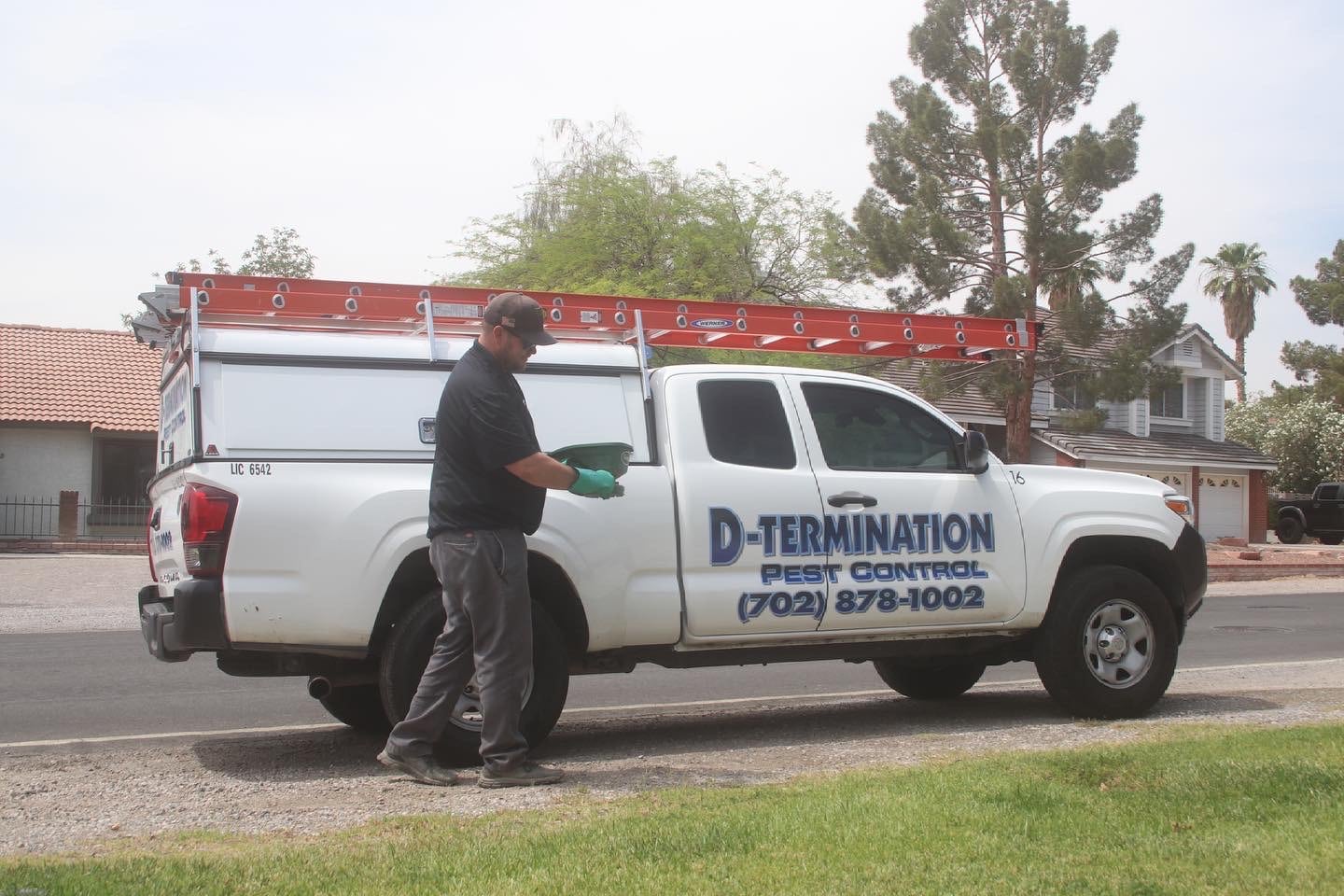Pigeons in garages can be quite a pesky problem for many homeowners. These feathered intruders have a knack for finding their way into our sacred car sanctuaries, leaving behind a trail of bird poop and potential damage.
It’s not just an aesthetic issue; there are also health risks associated with having pigeons roosting in your garage. In this article, we will delve into the common problem of pigeons in garages, exploring the reasons behind their attraction and the importance of keeping them out to prevent further damage.
Brief Overview of the Common Problem of Pigeons in Garages

If you’ve ever dealt with pigeons invading your garage space, you know firsthand the frustration it brings. Pigeons are notorious for seeking shelter in buildings, and garages offer them the perfect combination of warmth, protection from predators, and potential nesting spots.
Whether it’s an open door or an unsealed crack, these relentless birds will find their way inside your garage without hesitation. Once inside your garage, pigeons waste no time making themselves at home.
They can create nests using various materials found within your garage or even bring twigs and debris from outside to construct a cozy spot for themselves. The presence of these nests may attract other animals or pests seeking shelter as well.
Importance of Keeping Pigeons Out to Prevent Damage and Health Risks
Keeping pigeons out is not just about maintaining a clean garage appearance; it’s also crucial for preventing potential damage and health risks. Pigeon feces can accumulate rapidly and become highly corrosive over time. It not only stains surfaces but can also lead to structural damage to ceilings, walls, vehicles, or any items stored in close proximity.
Moreover, pigeon droppings pose significant health risks due to the presence of bacteria, fungi, and parasites. The dried feces can become airborne and potentially cause respiratory issues when inhaled.
Additionally, pigeons carry diseases such as histoplasmosis, salmonella, and ornithosis, which can be transmitted to humans through direct contact or inhalation of contaminated particles. By taking proactive measures to keep pigeons out of your garage, you not only protect your property from potential damage but also safeguard the health and well-being of yourself and your family.
In the following sections, we will explore effective strategies to deter these persistent birds from invading your garage space. From physical barriers to creating an uninviting environment, we’ll equip you with the knowledge needed to reclaim your garage from these feathery intruders.
Understanding Pigeon Behavior

Insight into why pigeons are attracted to garages
Pigeons are naturally drawn to garages due to several factors. One common reason is the availability of food sources. Garages often store pet food, which is a delicacy for these feathered creatures.
Additionally, if your garage has an outdoor dining area or a place where you frequently enjoy your meals, the smell of food can entice pigeons to explore further. Another reason behind pigeons’ attraction to garages is the shelter and warmth they provide.
Pigeons seek refuge from harsh weather conditions, and garages offer protection from rain, wind, and extreme temperatures. The cozy nooks and crannies found in garages make perfect nesting spots for these birds.
Overview of pigeon nesting habits and breeding patterns
Understanding pigeon nesting habits is crucial when it comes to keeping them out of your garage. Pigeons typically build their nests using twigs, leaves, feathers, and any other materials they can find.
They prefer secluded areas that provide protection from predators. Pigeon breeding patterns play a significant role in their population growth.
These birds breed throughout the year and can produce up to six broods annually. Each brood usually consists of two eggs, which hatch within 17-19 days.
Therefore, without proper prevention methods in place, pigeons can quickly multiply within your garage. To tackle this issue effectively, it’s essential to adopt strategies that discourage pigeon nesting and disrupt their breeding patterns.
One effective method is excluding pigeons by sealing off potential entry points such as gaps in windows or doors with bird netting or aluminum foil pans placed upside down on ledges or openings where they tend to roost. This prevents them from finding suitable spots for nesting in the first place.
Another approach involves installing bird wires or spikes on ledges and other surfaces where pigeons typically perch. These physical barriers make it uncomfortable for pigeons to land or roost, discouraging them from choosing your garage as their nesting site.
By understanding the motivations behind pigeons’ attraction to garages and their nesting habits, you can implement targeted strategies to effectively keep them out of your garage. Preventing pigeons from finding suitable nesting spots and disrupting their breeding patterns will go a long way in reducing their presence and ensuring a bird-free environment in your garage.
Assessing the Garage

Identifying Potential Entry Points for Pigeons
Pigeons are crafty creatures with a knack for finding their way into any nook and cranny. To effectively keep them out of your garage, you need to identify potential entry points that pigeons can exploit. Start by inspecting the garage door, looking for any gaps or holes in the weatherstripping or rubber seals.
Pigeons can squeeze through surprisingly small openings, so even a small gap could be an invitation for them to enter. Check around windows, vents, and any other openings that could provide access.
Take note of damaged screens or broken glass as well. Another common entry point is through the eaves or roofline of the garage.
Pigeons sometimes manage to find their way into attics or crawl spaces above garages and then work their way down into the main area. Inspect the roof carefully for loose tiles or damaged areas where pigeons might be able to gain access.
Evaluating Structural Vulnerabilities That May Attract Pigeons
Structural vulnerabilities in your garage can make it more attractive to pigeons seeking shelter. Look out for ledges or overhangs near windows that provide convenient perching spots for these pesky birds.
Also, pay attention to any gaps between walls and rooflines where pigeons could nest. Additionally, solar panels and air conditioning units mounted on roofs can create hidden spaces that attract pigeons as well as smaller birds seeking shelter from harsh weather conditions.
These areas often offer protection from predators and provide an ideal location for nesting. Don’t forget about potential food sources within your garage that may attract pigeons!
Trash cans with improperly sealed lids can not only lure these birds but also rodents looking for a free meal. Ensure your trash cans are tightly secured to prevent scavenging opportunities that would entice pigeons and other pests.
By carefully assessing your garage for potential entry points and structural vulnerabilities, you can take the necessary steps to secure these areas and make your garage less inviting to pesky birds like pigeons. With a proactive approach, you can effectively keep pigeons out of your garage and enjoy a bird-free haven.
Remember, if you’re unsure about how to proceed or facing persistent pigeon problems despite your efforts, it’s always wise to consult with a pest control specialist who has expertise in bird control. They can provide tailored advice and recommend appropriate measures such as installing bird spikes, liquid bird repellent, or even implementing pigeon birth control strategies.
Implementing Deterrents

Physical barriers: Installing bird netting or wire mesh on openings
When it comes to keeping pigeons out of your garage, physical barriers are an effective deterrent. Installing bird netting or wire mesh on openings such as windows, vents, and even gaps in the walls can prevent these feathered intruders from gaining access. Make sure to choose a netting or mesh that has small enough holes to keep pigeons out while still allowing for proper airflow.
To install bird netting, start by measuring the dimensions of the opening you want to cover. Cut the netting slightly larger than the opening and attach it securely using staples or zip ties.
For larger areas, consider using wire mesh instead, which provides a sturdier barrier. Securely fasten the mesh over the opening using screws or hooks.
Detailed instructions on proper installation techniques
When installing bird netting or wire mesh, ensure that it’s taut and free from any gaps that pigeons could squeeze through. Pay special attention to corners and edges where birds might try to find weak points in the barrier.
For windows, consider applying removable weatherstripping around the edges before installing the netting or mesh. This added layer will provide extra protection against pigeon intrusion.
Tips for selecting the right materials
Choosing suitable materials is crucial for effective pigeon control in your garage. Opt for high-quality bird netting made from durable materials like polypropylene with UV protection that can withstand outdoor conditions without deteriorating quickly. When selecting wire mesh, look for sturdy options like galvanized steel with smaller gaps (around ½ inch) between wires to prevent pigeons from squeezing through.
Visual deterrents: Utilizing scare devices and reflective objects
Visual deterrents take advantage of pigeons’ instincts, making your garage appear inhospitable and uninviting to them. Scare devices and reflective objects are commonly used to achieve this.
Explanation of how visual deterrents work on pigeons’ instincts
Pigeons are naturally cautious and easily spooked by sudden movements or unfamiliar objects. By strategically placing scare devices in areas where pigeons roost or nest, you can startle them and discourage their return. These can include decoy predators like plastic owls or falcons, as well as moving objects like spinning pinwheels or inflatable scarecrows.
Reflective objects such as old CDs, aluminum foil strips, or mylar balloons can also be effective at deterring pigeons. The sunlight reflecting off these shiny surfaces creates an unsettling environment for the birds, causing them to seek shelter elsewhere.
Examples of effective scare devices and their placement strategies
Placing scare devices strategically is key to maximizing their effectiveness. Install plastic owls or falcons on a pole near your garage entrance, roofline, or other preferred pigeon perching spots. Make sure to move these decoys periodically to avoid habituation.
For moving objects like spinning pinwheels or inflatable scarecrows, position them near roosting areas so that they catch the wind and create motion. Pigeons will associate this movement with danger and think twice before considering your garage as a suitable spot for nesting.
As for reflective objects, hang old CDs from strings around potential pigeon roosting areas inside the garage or place mylar balloons near entrances. The glint of light bouncing off these items will make pigeons think twice before attempting to enter your space.
Sound deterrents: Employing audio devices or recordings
Sound deterrents capitalize on pigeons’ sensitivity to certain sounds that they find uncomfortable or threatening. By using audio devices or recordings that emit such sounds, you can discourage pigeons from choosing your garage as their nesting site.
Explanation on how certain sounds can repel pigeons
Pigeons are highly adaptive birds, and certain sounds can disrupt their sense of security, leading them to seek quieter and safer locations. The sound of predator birdcalls or distress calls is particularly effective at scaring away pigeons.
Recommendations for specific sound deterrent products
Several sound deterrent products are available on the market specifically designed to repel pigeons. These devices emit realistic recordings of predator birdcalls or distress calls that effectively deter pigeons from venturing near your garage.
Ultrasonic devices emit high-frequency sounds that are harmless to humans but annoying to birds. Placing these devices near potential pigeon roosting areas can prevent them from settling in your garage.
When selecting sound deterrents, consider using programmable ones that vary the intervals and patterns of the emitted sounds. This helps prevent habituation, ensuring that the deterrent remains effective over time.
By implementing physical barriers like bird netting or wire mesh, utilizing visual deterrents such as scare devices and reflective objects, and employing sound deterrents through audio devices or recordings, you can effectively keep pigeons out of your garage. These methods create an uninviting environment for these persistent birds while simultaneously protecting your property from potential damage caused by their presence.
Creating an Uninviting Environment

Cleaning and Decluttering the Garage Regularly to Remove Food Sources
To effectively keep pigeons out of your garage, it is crucial to eliminate any potential food sources that might attract them. Regular cleaning and decluttering will help achieve this. Start by removing any spilled pet food or seeds from the floor, as these can be tempting for hungry birds.
Store your pet food in airtight containers to prevent birds from accessing it. Additionally, if you have any bird feeders near your garage, consider relocating them further away to prevent birds from associating the area with a readily available food supply.
Tips for Proper Storage and Disposal Methods
Proper storage and disposal methods play a crucial role in deterring pigeons from frequenting your garage. Store all garbage in tightly sealed bins, both inside and outside of the garage.
Dispose of garbage regularly to prevent odors that may attract not only pigeons but also other wildlife. Furthermore, avoid leaving bags or boxes of items lying around in your garage, as these can provide shelter or nesting opportunities for birds.
Guidelines for Maintaining Cleanliness in the Garage Area
Maintaining cleanliness in your garage will not only deter pigeons but also help create an environment that is unappealing to other animals seeking shelter or food. Sweep away any debris or feathers regularly and mop up any spills promptly. Be sure to check corners, shelves, and hidden areas where droppings may accumulate unnoticed.
Minimizing Attractive Nesting Spots Inside the Garage
Pigeons are notorious for seeking out comfortable spots to build their nests inside garages. Take some time to inspect the nooks and crannies around your garage for potential nesting spots such as rafters, beams, or crevices.
If you identify any attractive areas, consider blocking them off with materials like mesh wire or wooden boards to prevent pigeons from gaining access. By denying them suitable roosting locations, you significantly reduce the likelihood of pigeons establishing themselves in your garage.
Suggestions for Sealing off Potential Nesting Areas
Sealing off potential nesting areas is an effective solution for excluding pigeons from your garage. Use caulk or weather-stripping to seal any gaps or cracks in the walls, doors, and windows.
Pay close attention to areas where these openings may be larger, such as around pipes or vents. By eliminating these entry points, you create a barrier that not only prevents birds from entering but also keeps out other unwanted pests.
Tactics to Discourage Roosting Behavior
Pigeons are known to roost on ledges and beams inside garages. To discourage this behavior, consider using visual and auditory deterrents. Hang reflective tape or wind chimes near potential roosting spots as the movement and noise will make them uncomfortable.
Another effective tactic is installing bird wires across ledges or beams where pigeons tend to perch. These wires create an unstable surface that makes it difficult for birds to balance and discourage them from landing there.
Creating an uninviting environment in your garage for pigeons involves regular cleaning and decluttering, proper storage methods, maintaining cleanliness, minimizing attractive nesting spots, sealing off potential entry points, and using tactics that discourage roosting behavior. By implementing these strategies consistently, you can effectively deter pigeons from making your garage their home while ensuring a clean and pest-free space for yourself.
Dealing with Persistent Pigeon Problems
Seeking professional help from pest control experts
When all your efforts fail to deter pigeons from invading your garage, it’s time to consider seeking assistance from pest control experts. These professionals specialize in bird control and have the experience and knowledge needed to handle stubborn pigeon infestations. They possess the skills to identify nesting areas, locate entry points, and implement effective solutions tailored to your specific situation.
Advantages of professional assistance
Calling in the professionals offers several advantages. Firstly, they have access to a range of advanced techniques and tools specifically designed for bird control. From bird spikes that make perching areas uncomfortable for pigeons, to gels that repel birds without harming them, these experts know which methods are most effective in deterring pigeons without causing harm.
Secondly, pest control experts can help you eliminate pigeons without causing harm or distress to other wildlife. They understand the importance of maintaining a balanced ecosystem and will implement environmentally friendly solutions that don’t harm any other birds or animals that may be present in your surroundings.
Additionally, these professionals are trained in safely handling pigeon droppings which can carry diseases harmful to human health. By entrusting the task of cleaning up pigeon waste to them, you can ensure that all necessary precautions are taken and avoid exposing yourself or others to potential health risks.
Their expertise extends beyond just dealing with pigeons. If you have issues with other birds or wildlife encroaching on your property or garage area, they can provide recommendations on preventive measures tailored specifically for those species as well.
Conclusion
Keeping pigeons out of your garage requires persistence and thoroughness but is achievable with the right strategies. By understanding pigeon behavior and implementing deterrents such as physical barriers, visual scare devices, sound deterrents, creating an uninviting environment, and seeking professional help when needed, you can successfully prevent pigeons from making your garage their nesting ground.
Remember, when facing persistent pigeon problems, it’s crucial not to get discouraged. With the right knowledge and tools at your disposal, you have the power to protect your garage from unwanted feathered guests.
By taking proactive measures and staying vigilant, you can enjoy a clean and pigeon-free environment. So don’t let those pesky pigeons spoil your garage space any longer.
Take action today and take back control of your property. With the effective solutions provided in this article, you’re well on your way to enjoying a pigeon-free garage and peace of mind.
Safeguard Against Pigeons with D-Termination: Las Vegas’ Top Pest Control Solution!

If pigeon problems are troubling you, count on D-Termination for assistance. Our skilled team specializes in pigeon deterrence and the revitalization of cleanliness and integrity in your space. Bid farewell to pigeons by selecting D-Termination for highly effective pest control today!
Contact us at 702-919-6310 or visit dtermination.com to arrange your pigeon control service and regain your space from these unwelcome pests.
Frequently Asked Questions:
WD-40 is not an effective pigeon deterrent.
You can make a pigeon deterrent using items like spikes, nets, or reflective tape.
Wind chimes may help keep pigeons away due to the noise and movement.
Birds might fly into your garage accidentally, attracted by light or food sources.








